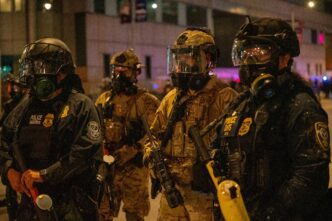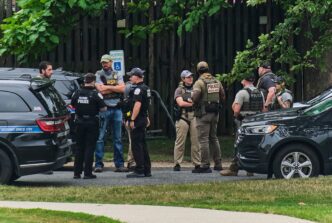A significant legal effort is underway in Florida, where a prosecutor is seeking to vacate thousands of convictions stemming from controversial police operations in the late 1980s. These cases involve individuals who purchased crack cocaine manufactured by the Broward County Sheriff’s Office as part of sting operations.
Between 1988 and 1990, the Broward County Sheriff’s Office engaged in sting operations where they produced crack cocaine and sold it to unsuspecting buyers, leading to numerous arrests. The Florida Supreme Court in 1993 declared that individuals could not be prosecuted in cases where the crack was produced by law enforcement and sold by undercover deputies. Despite this ruling, it appears numerous convictions from that period remain on individuals’ records.
Harold F. Pryor, the Broward County State Attorney, announced his intention to address these longstanding convictions, highlighting the injustices caused by these operations. In a recent statement, Pryor emphasized, “It is never too late to do the right thing.” Prosecutors reviewing past records discovered that many individuals still carry criminal charges due to these operations, often resulting in severe consequences including lengthy prison sentences.
The operations have been criticized for targeting individuals who purchased, rather than sold drugs. Ed Hoeg, a defense lawyer who represented an affected individual, Leon Williams, explained that law enforcement posed as dealers, selling drugs within 1,000 feet of schools to ensure harsher penalties. This tactic was part of a broader trend during the crack cocaine epidemic, which saw the implementation of severe legal measures and aggressive police tactics.
The sheriff’s office justified their actions at the time by stating the necessity of manufacturing crack due to insufficient seized drugs for sting operations. Additionally, they cited the practicality of not needing to test the drug’s content if produced by their chemist. However, the state Supreme Court found these practices to violate due process rights under Florida law, describing them as “outrageous.”
Pryor has informed Broward County Sheriff Gregory Tony of his plan to request judges to nullify these convictions. He also mentioned the possibility for some defendants to have their records sealed or expunged, offering a chance to alleviate the enduring stigma of a criminal record. The review process is expected to be extensive, and Pryor assures that affected individuals will be contacted directly.
The attempt to rectify past judicial errors highlights ongoing efforts to address injustices from a turbulent period in American drug policy. As the review process unfolds, it serves as a reminder of the long-lasting impacts of law enforcement strategies and the importance of safeguarding due process rights. This initiative reflects a broader commitment to justice and rehabilitation, ensuring that those affected by controversial practices of the past receive fair treatment.
Source: News4jax








